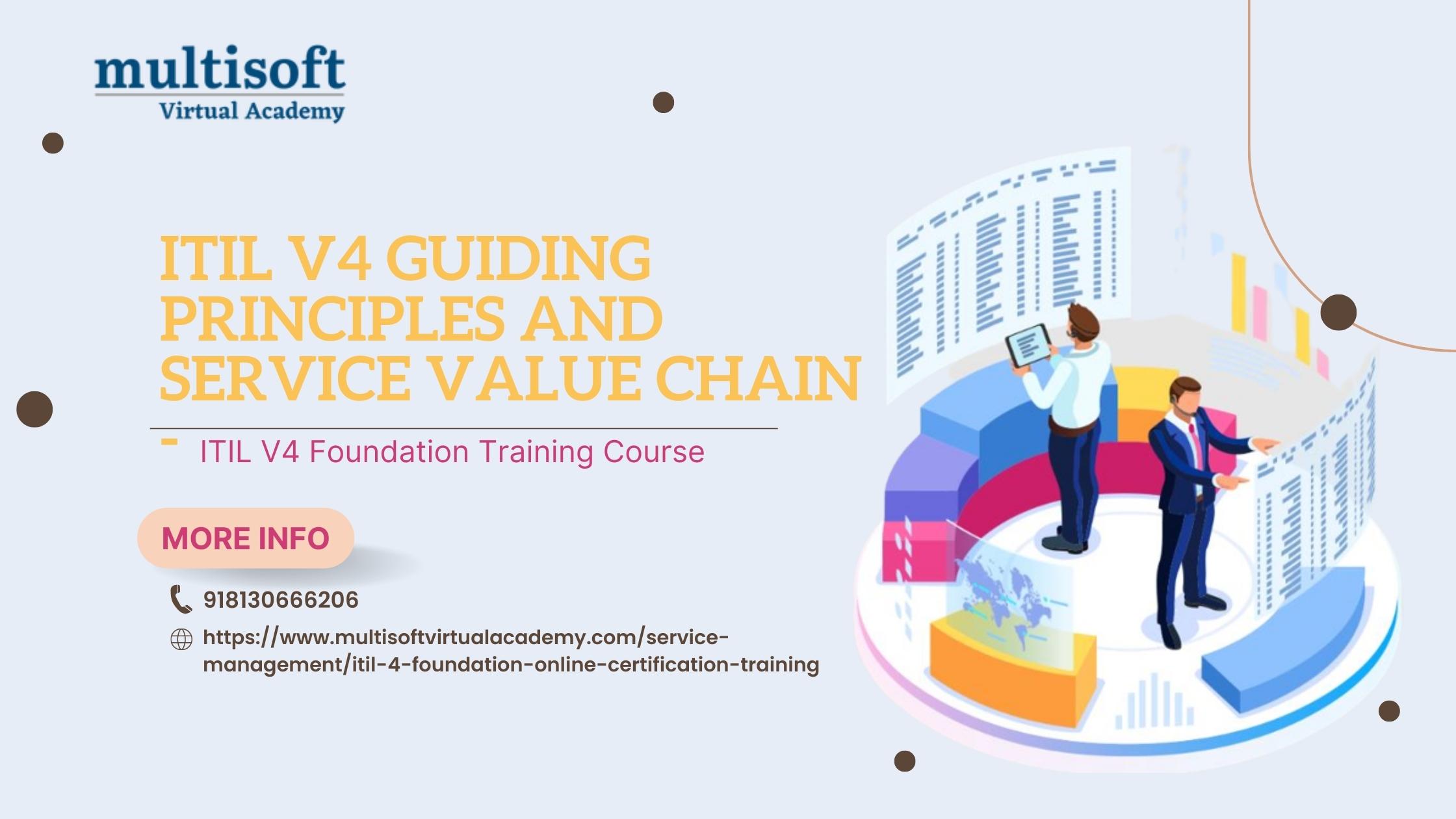
When looking for an ITIL V4 Foundation Training course to enrol in, most of us always look for the ..." />

When looking for an ITIL V4 Foundation Training course to enrol in, most of us always look for the ..."/>



When looking for an ITIL V4 Foundation Training course to enrol in, most of us always look for the best training organization to deliver the course. But, what we often overlook is to check whether the course actually benefits our career or not.
The best and may be the only way to find that out is to do a little research and learn about the platform, service or technology so that you know what all the course would be about, the capabilities and benefits offered by the technology or platform. This way you would know exactly what you are going to learn and get a better grasp of the concepts. In this article, you will learn the guiding principles of ITIL V4 and ITIL Service Value Chain.
The previous version, ITIL V3 was considered to lack a set of overarching principles for ITSM process designing and execution. ITIL V3 was also considered to be overly prescriptive standard, as it stated IT organizations what and when processes be implemented but failed to explain the way to manage the process.
In order to address this issue, ITIL V4 framework was introduced, wherein the framework consists of 7 guiding principles to drive value creation for IT organizations. ITIL V4 guiding principles play important role, enabling better decision-making and assist IT managers develop strategies and conclusions for cases where ITIL V4 guidance principles have not been implemented.
ITIL 4 service value chain is described as a combination of six key activities that work in conjunction to deliver a product or a service, thus creating value for the users. The activities work with different combinations of ITIL management practices for performing a specific type of work. Furthermore, these activities are interconnected and collect inputs from within the service value chain or from external sources.
Multisoft Virtual Academy has been in training industry for more than 2 decades and backed by a team of global subject matter experts from around the world. When you enroll for ITIL V4 Foundation Training course from Multisoft, you get the opportunity to learn from experienced industry experts and gain experience and skills in ITIL V4 with hands-on experience from real-life projects and assignments. All the courses offered by Multisoft come with perks like lifetime access to e-learning material, recorded training session videos and after training support.
The courses are delivered in live instructor led, one-on-one and corporate training sessions, where after successful completion of the ITIL V4 Foundation Training course, aspirants receive a globally recognized training certificate to validate and showcase their learning and skills to employers across the world. What’s more? Multisoft after training support assists you to connect with potential employers and lucrative job opportunities in related areas, so that you can step up in the career ladder without delay.
If you want to learn how to make the most of Information Technology Infrastructure Library, ITIL V4 Foundation Training course is for you. ITIL enables businesses to meet their changing IT demands using ITIL4 best practices and processes, along with lowering costs and improving the quality of IT services across the entire organization.
| Start Date | Time (IST) | Day | |||
|---|---|---|---|---|---|
| 05 Jul 2025 | 06:00 PM - 10:00 AM | Sat, Sun | |||
| 06 Jul 2025 | 06:00 PM - 10:00 AM | Sat, Sun | |||
| 12 Jul 2025 | 06:00 PM - 10:00 AM | Sat, Sun | |||
| 13 Jul 2025 | 06:00 PM - 10:00 AM | Sat, Sun | |||
|
Schedule does not suit you, Schedule Now! | Want to take one-on-one training, Enquiry Now! |
|||||

Shivali is a Senior Content Creator at Multisoft Virtual Academy, where she writes about various technologies, such as ERP, Cyber Security, Splunk, Tensorflow, Selenium, and CEH. With her extensive knowledge and experience in different fields, she is able to provide valuable insights and information to her readers. Shivali is passionate about researching technology and startups, and she is always eager to learn and share her findings with others. You can connect with Shivali through LinkedIn and Twitter to stay updated with her latest articles and to engage in professional discussions.

 Join our Live Instructor-Led online classes delivered by industry experts
Join our Live Instructor-Led online classes delivered by industry experts Get complete access to our 360° Learning Solution
Get complete access to our 360° Learning Solution  Earn a globally recognized training certificate from learning partners, such as Microsoft, Axelos and IIBA.
Earn a globally recognized training certificate from learning partners, such as Microsoft, Axelos and IIBA. Avail after-training career assistance
Avail after-training career assistance Access Specialized Career Advice by Sharing Your Information.